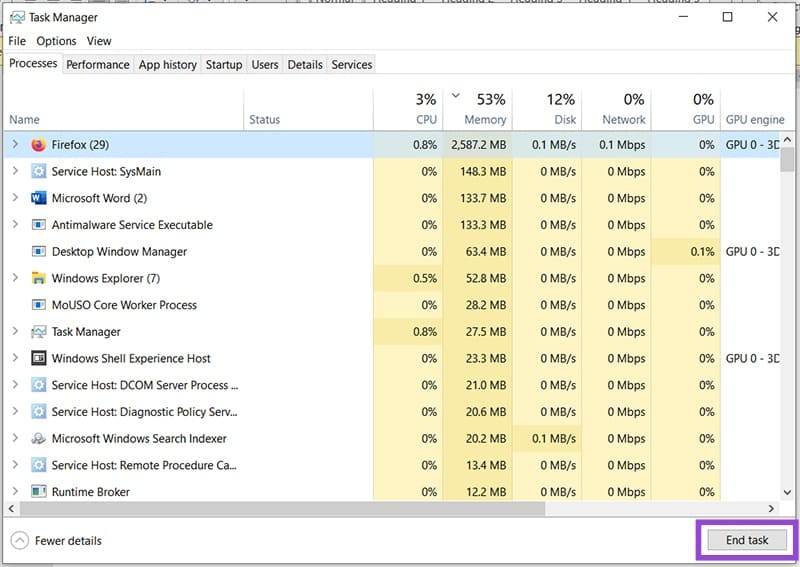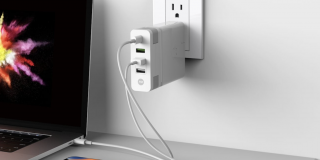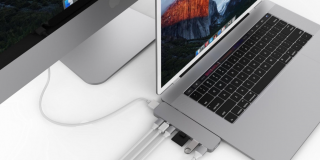How to Get More RAM for Laptop
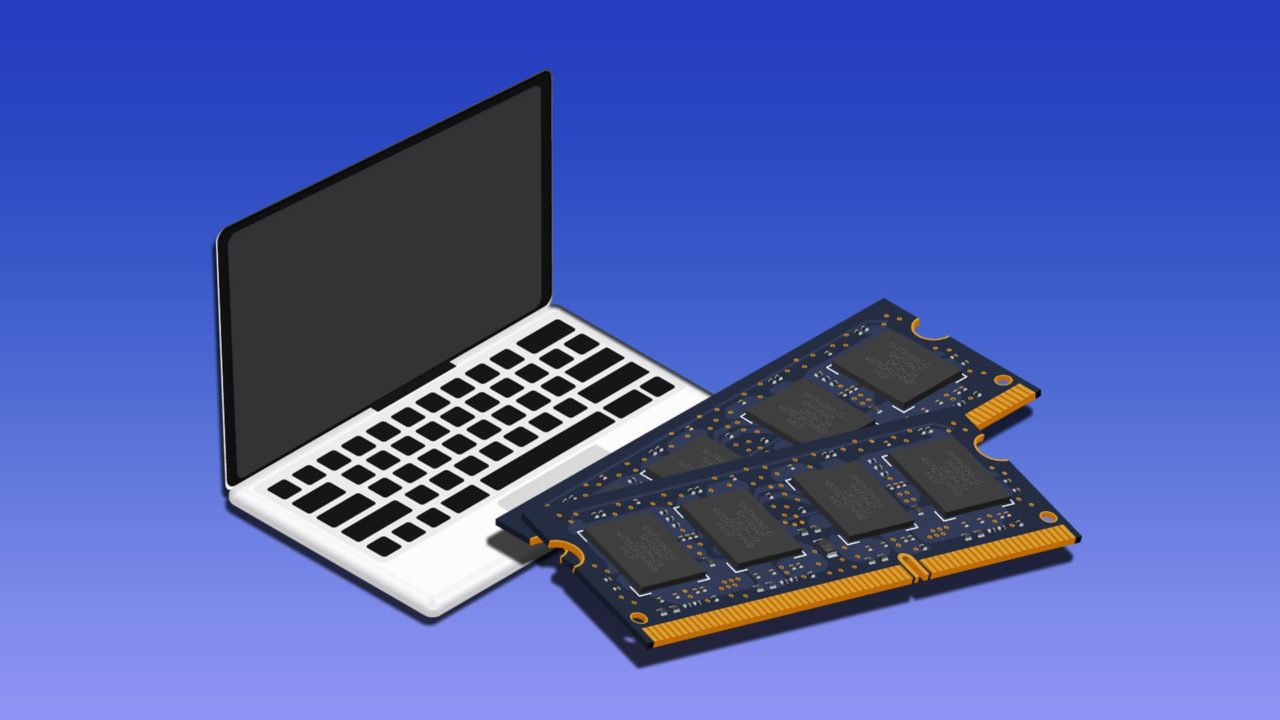
RAM is the storage that determines how many active processes your laptop can handle at any given time. Unlike your hard drive, RAM acts as temporary storage, and it is flushed every time your machine is shut down. The more you have available, the more you can get done.
It’s only natural to want a little more. This article will show you how to get more RAM, both by replacement and by freeing up your current memory.
How to Get More RAM for Your Laptop
There are two main ways to get more RAM for your laptop. You can either focus on freeing up whatever RAM you currently have installed in your machine or physically install more. Let’s look at the hardware side first:
Buying More RAM
Depending on your machine, RAM can either be one of the easiest or hardest components to upgrade. RAM connects directly to the motherboard through slots. The number of RAM slots dictates how many RAM sticks you can slot in.
Unfortunately, newer laptops, like MacBooks and slimly designed notebooks, often have their RAM directly soldered to the motherboard to minimize space. Without professional help, or even by replacing the entire motherboard, you won’t be able to upgrade this RAM.
Analyzing Your RAM
To check your machine’s RAM slots and current capabilities, there are two options open to you. The first is to check with Task Manager:
1. Open Task Manager either by pressing (Ctrl + Alt + Del) or directly by pressing (Ctrl + Shift + Esc).
2. Open the “Performance” tab and click on “Memory.”
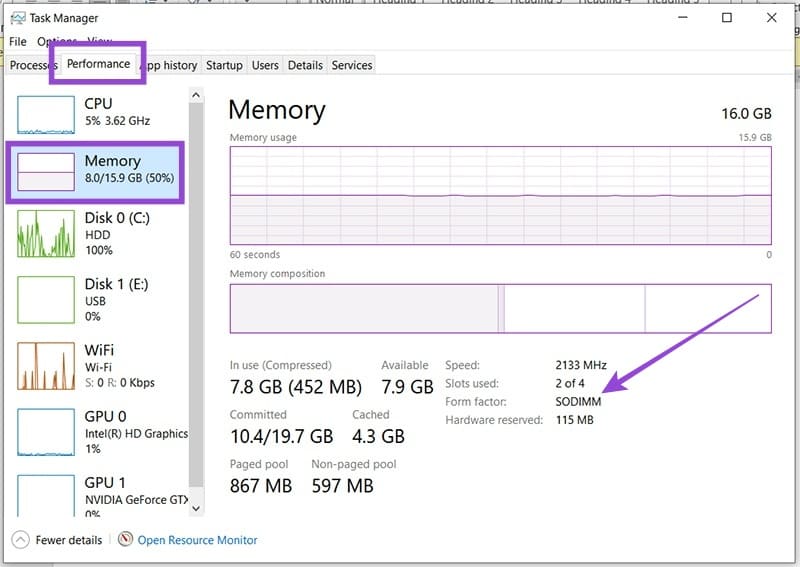
3. At the bottom of the window, you’ll see the type of RAM your machine is currently using and how many slots are being used. SODIMM or RAM can easily be replaced or upgraded, while soldered RAM cannot.
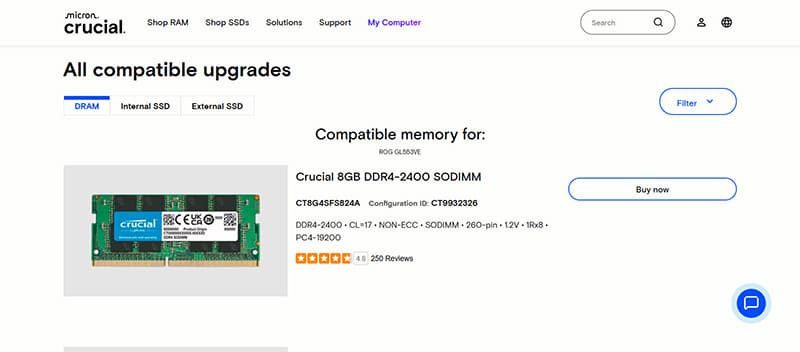
The second choice for analyzing your RAM options is the free-to-use website Crucial System Advisor. Simply enter the make and model of your machine, and you’ll be able to see what RAM and other crucial components your PC uses and supports.
Freeing Up Existing RAM
If you’re happy with your existing RAM but want to make sure you’re getting the most out of it, you can try a few solutions to free things up:
Restart Your Machine
RAM is volatile memory by its very nature and is cleared whenever your laptop is turned off. By restarting your PC, you’ll be able to flush your RAM and begin with a clean slate.
Clear Some Background Apps
Many apps run on your machine at any given time, some in the background. You might not know about these, and what’s more, you might not even need some. Here’s how to switch them off and save yourself some RAM space:
1. Type “Background Apps” into the Search Bar to open up the window.
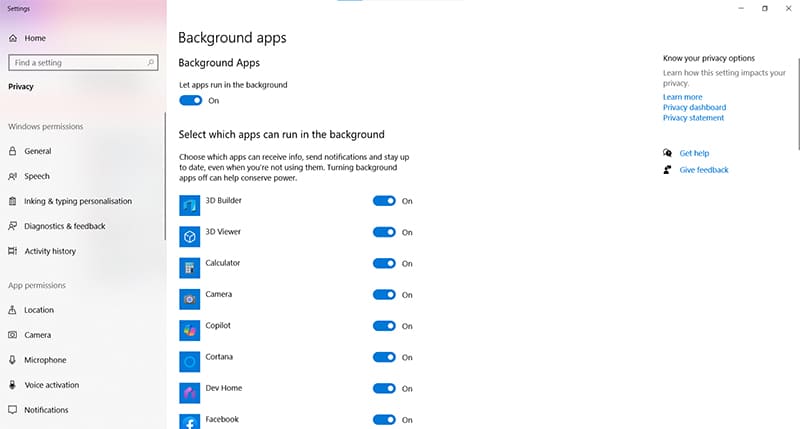
2. You’ll see a list of apps that run in the background. These run and update as they please. If you spot any you don’t need, drag their slider to “Off.”
These apps don’t take up a whole lot of space, but every bit helps.
Close Programs in Task Manager
Task Manager makes it easy to see which programs are using the most memory. You can see how much RAM is currently being used and what you need to close to free it up. Here’s how:
1. Open up Task Manager (Ctrl + Shift + Esc) and click on the “Processes” tab.
2. Click the “Memory” column header to arrange all processes by the amount of memory they’re consuming.
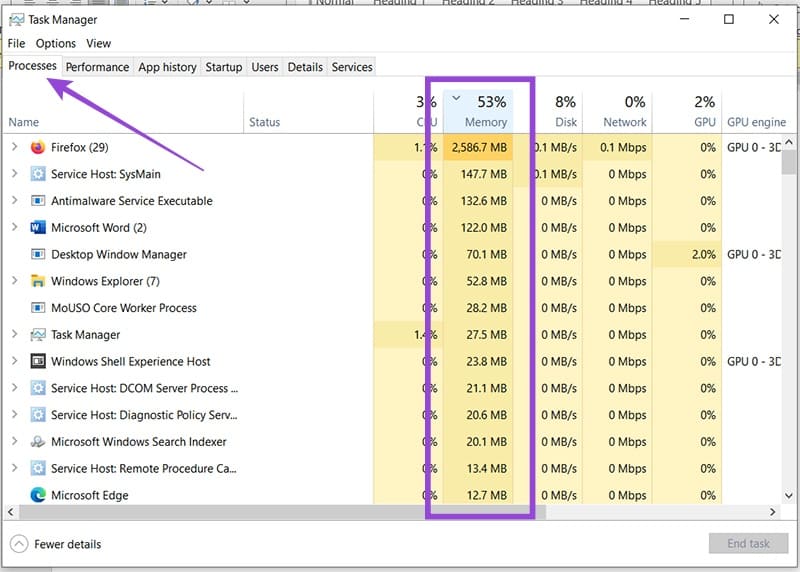
3. To close any process, simply click on it, then hit the “End Task” button. You can also close the program manually to save your current work.
